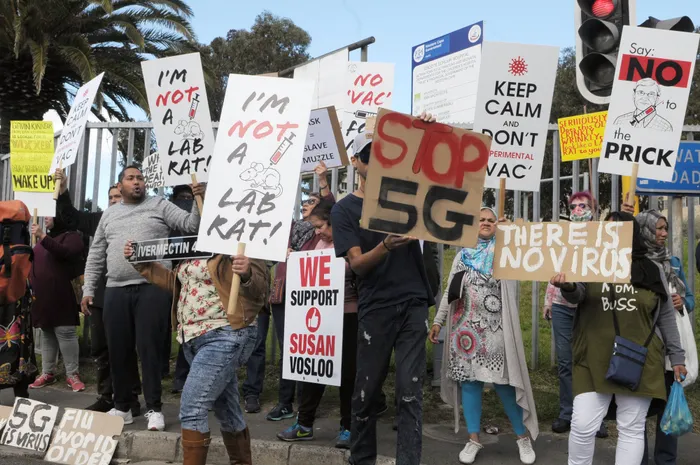Vaccines: A struggle of perspectives and reducing debate to a binary conversation

Rudi Buys writes that the strategy to reduce any debate to a binary conversation for or against any view on vaccination is at the heart of everyday discussions on every level of society. Picture: Tracey Adams/African News Agency (ANA)
It was a terrible night. His oxygen levels dropped without warning. Suppliers were out of oxygen. In fear of the worst, a close-knit family held their breath and prayed as they waited to see their father and grandfather leave or return to them from the brink.
He survived and in time returned to good health, as many other patients tragically do not. The family celebrates his recovery as a God-given miracle, offering prayers with deep gratitude to their Saviour.
However, a silence remains in between the moments of laughter. It is a silence that threatens to disrupt their togetherness and keep the struggle of life and death close – the silence to avoid the distance between different family members who are either for or against vaccination.
Those who earlier demanded and arranged for their father to be vaccinated are convinced that the miracle of his recovery only was possible for that reason. Those against vaccination, who as a matter of faith argue against it, are convinced that his recovery is a miracle precisely because their father struggled not only with the virus, but also the threat of the vaccine.
Some see the grace of God in a vaccine that mediates symptoms to achieve the miraculous, while others in the miracle see an act of God to triumph over the threats of fear and control the pandemic and vaccines represent.
As elsewhere, in this family the terrible struggle rages with the increasing physical and social distances between people brought on by the pandemic.
In this case it is not firstly about physical proximities, but a struggle of perspectives on, and subsequent decisions to get vaccinated or not.
In this one family, demands for freedom of choice and attempts to force compliance mark the struggle – a struggle that leads to instances of fury, as much as of reunion.
Their contest is ours.
On a societal level, how we make sense of and enact freedom and when its limits are justified, and of how we mediate the rage and find peace while we fight contagion and death, underpin much of the discussion.
The strategy to reduce any debate to a binary conversation for or against any view on vaccination is at the heart of everyday discussions on every level of society – the simpler one can represent the opposite view, the easier it is to paint it as a threat and offer your view as the heroic alternative.
Similarly, to reduce different views to simple opposites makes it possible to paint others’ frustration as evidence of foolishness and present your willingness to debate as a heroic readiness to reconcile.
When read in this way, what seems to drive popular debates on vaccination, are emotional needs of a society in distress, a society in dire need of heroes to save the future – understandably so when families face the trauma of hoping for life in the face of death.
What may shift the debate and decrease distances at a time when fear, trauma and uncertainty flood families, communities, and society at large, is to rethink what opposites we assign to the debate.
Where the debate on vaccination pits freedom against coercion, freedom in fact rather is in dialogue with “consideration”; where the debate pits reconciliation against rage, it is rather a dialogue of fear and “kindness”.
When we redefine the debate as such, will there be peace and freedom without limits? No. Will there be uninterrupted togetherness? No. But what there will be is a return to the values of care and healing that hold up our nation.
* Rev Dr BR Rudi Buys is Executive Dean and Dean of Humanities: Cornerstone Institute.
** The views expressed here are not necessarily those of Independent Media.
Do you have something on your mind; or want to comment on the big stories of the day? We would love to hear from you. Please send your letters to arglet@inl.co.za.
Related Topics: